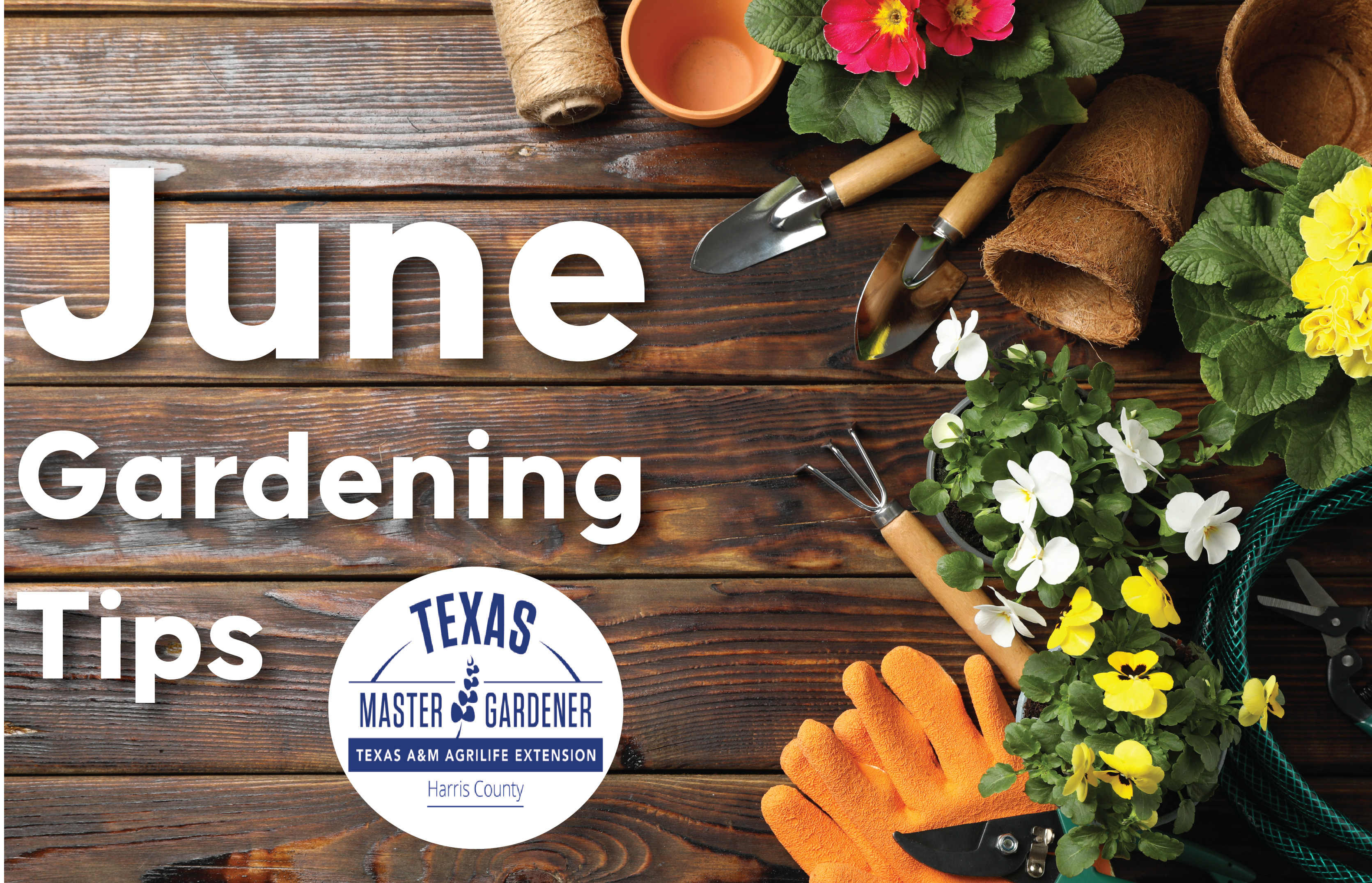
Expert June Gardening Tips Shared by Harris County Master Gardeners
This information has been generously provided to Harris County residents free of charge by the Harris County Master Gardeners, an expert group of trained volunteers assisting Texas A&M AgriLife Extension Service in educating the community using research-based horticultural information.
Did you know that the Harris County Master Gardeners offer free training, events and other resources all year round? To learn more, visit hcmga.tamu.edu.
By Karen Shook, Harris County Master Gardener
Summer in our area means a need for heat tolerant plants to grace our gardens, but even plants considered "heat tolerant" may balk at the mid 80s average summer temperature in our area, not to mention plenty of days in the 90’s. The plant selector tool link includes heat tolerance information. Earth-Kind®Plant Selector
Over the past 25 years, average rainfall for June is six inches. Even if rainfall provides the extra water plants need in the heat, remember to keep the gardener hydrated.
As always, be alert for pests. They are getting more active in June. Spider mites really like hot weather!
Perennials and Ornamental Grasses
- Cutting back perennials helps promote new growth. Cut back salvias by 1/4 as blooms decline. Prune fall blooming perennials by 1/3.
- Consider adding foliage plants to your garden beds. Elephant ears, for example, love the heat. Ornamental grasses will do well in the heat as long as they have adequate moisture.
Annuals
- Feed your annuals every 4 to 6 weeks.
- As weather warms, annuals in containers will need more frequent watering. Fertilize annuals in containers once per week at 1/2 recommended rates.
Bulbs
- You can plant cannas and iris in June.
- Fertilize actively growing bulbs. Remove seedpods and old flower spikes.
- Watch for pests. Thrips may find your gladiolus tempting.
Roses
- Continue to spray for blackspot, powdery mildew, aphids, etc., every 7 to 10 days through November. Decreased foliage from blackspot or powdery mildew reduces bloom potential. Keep the beds cleaned of any leaves that yellow and drop.
- Fertilize every 4 to 8 weeks depending on health of the rose.
Shrubs
- Complete any needed pruning to spring flowering shrubs, trees, and vines.
Natives
- You can direct seed warm-season native annuals if you make sure they get enough water to get going.
Lawns
- Lawns that were fertilized in April may need to be fertilized again.
- Frequent mowing (to make sure you only remove 1/3 of height each mowing) at proper height for your type of lawn is good way to increase lawn density which helps choke out weeds.
- New sod needs to be kept moist.
Ground Cover
- Tough ground covers like Asian jasmine should be okay if planted in June.
Edibles (vegetables, herbs, berries, fruits)
- You can still plant heat tolerant okra, southern peas, sweet potatoes. Soak the area before planting.
- Mulch. It helps keep the soil cool which is healthier for vegetable roots.
- See the following link for recommended planting times: Harris County Vegetable Planting Guide
Trees
- Plant palms in summer’s warm and wet months.
- I have cypress trees which I love, but the cypress knees are a problem. You can use a saw to remove cypress knees just below soil surface without hurting the tree.
Want to go deeper? Visit the Harris County Master Gardeners' Urban Dirt Index for a plethora of information about gardening in your region at hcmga.tamu.edu/urban-dirt-index. Submit your horticulture questions to the Harris County Master Gardeners at hcmga.tamu.edu/ask-a-question.
Source: Harris County Master Gardeners








